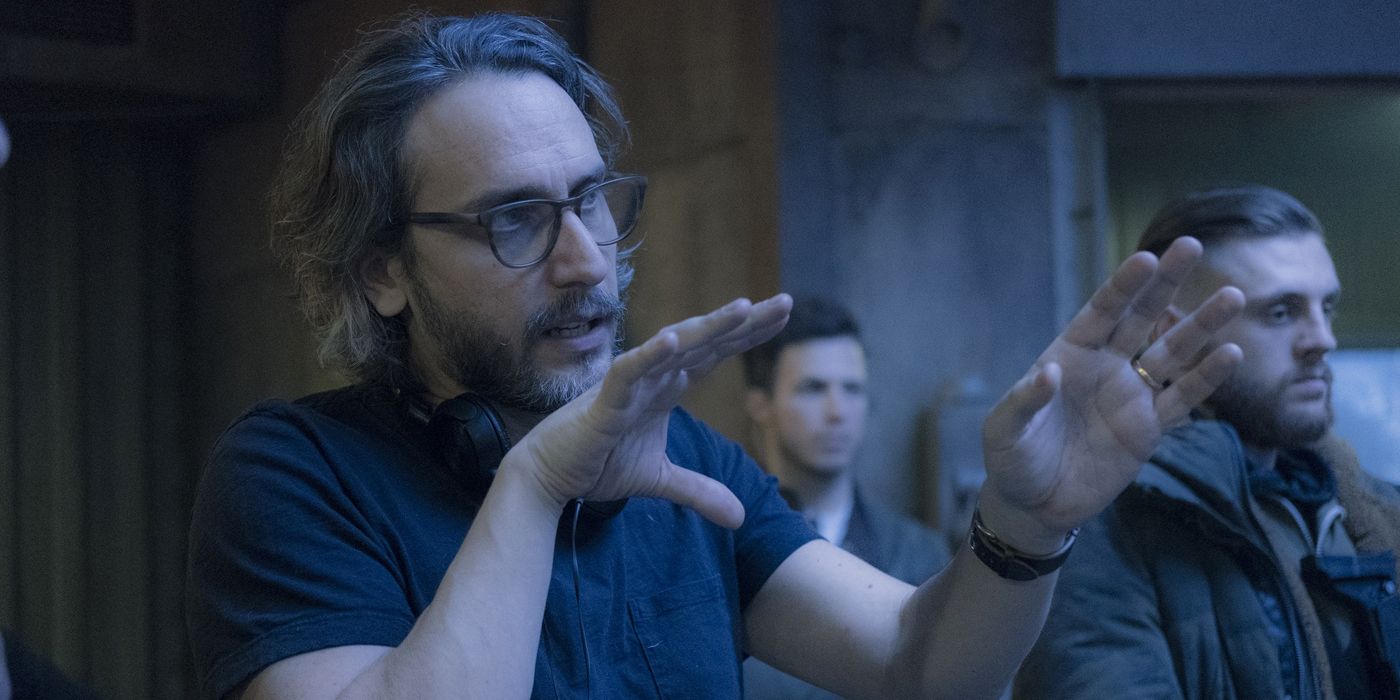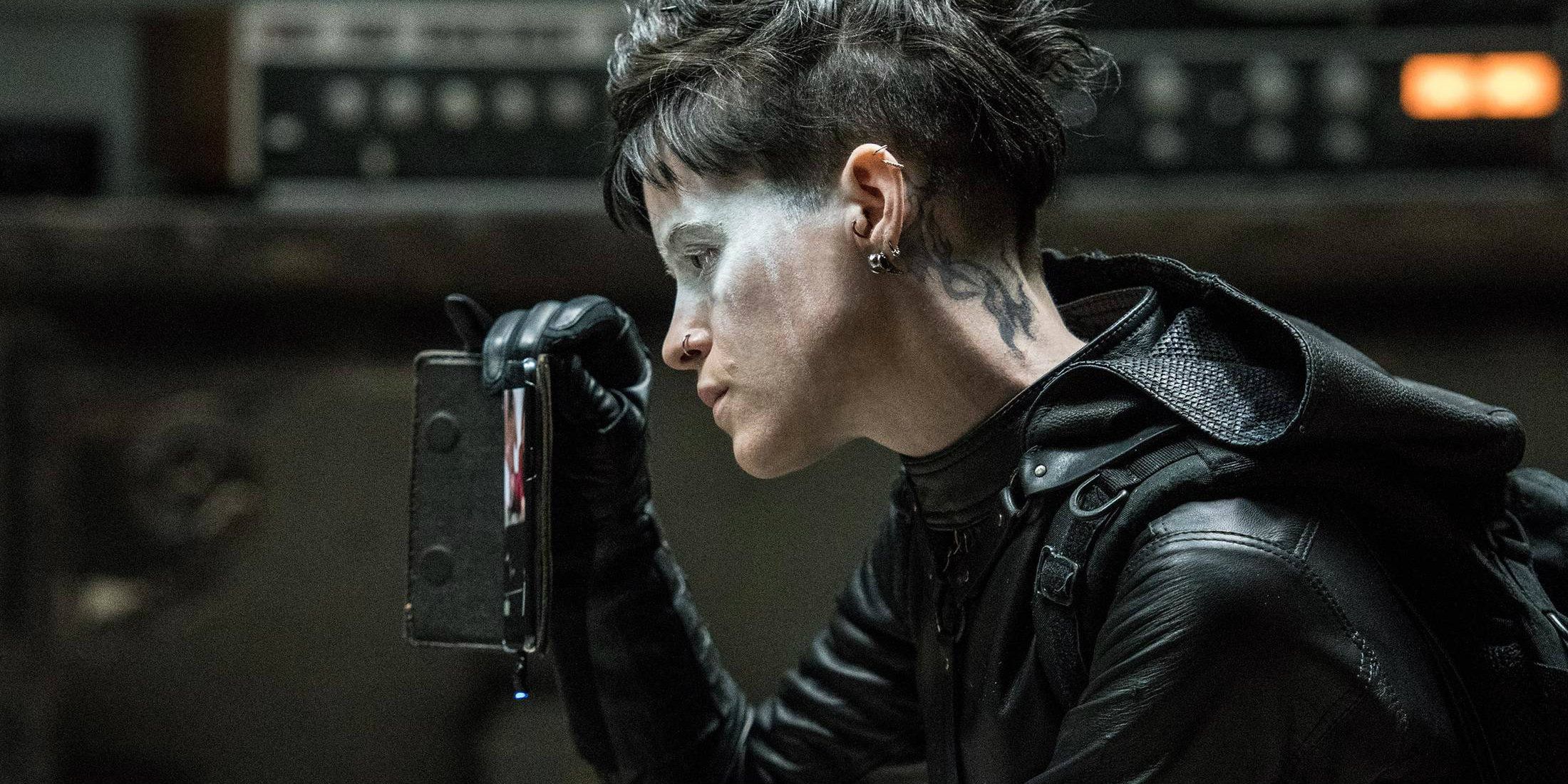
Fede Alvarez doesn't do things as you expect. His debut feature, Evil Dead, was the rare reboot of a 1980s horror franchise that fans of the original have embraced, then his follow-up, Don't Breathe, flipped the home-invasion thriller on its head with an unsettling turkey baster. And now he's taken on Lisbeth Salander: his third feature film is The Girl in the Spider's Web, the reboot of the Millennium series that sees Claire Foy taking on the role of the girl with many talents. Fitting of Alvarez, it's a very interesting thriller; a movie that is grounded and cold, yet also high stakes and fast-paced.
For the release of The Girl in the Spider's Web, Screen Rant sat down with Alvarez ahead of the film's Rome Film Festival premiere to discuss working in the shadow of Bond, the source books (both Steig Larrson's original trilogy of Millennium books and the David Lagercrantz follow-up on which this is based), and the previous David Fincher adaptation.
What you do with this film is really interesting in terms of the whole series because I think it makes it a lot more like Bond - in terms of how you create this adventure, this different tone to what we've seen before, and make it very personal but enable it to be something where Lisbeth Salander can run forever in all different permutations. Was that your intention - and how did you go about that?
Well, yes. I guess it was intentional. It happens in the books - the books evolve in such a way. You start with this very small, you know, family mystery and then they went a bit crazier. And I love that and I love getting the chance to jump ahead a little bit and go to a world where Lisbeth has become an icon - a little bit of a local celebrity almost - in her town. No one knows who she is but everybody knows what she does. So it was definitely the Bond aspect I think, just because I'm a fan of those movies. I think... when stories are very personal for the main character but the stakes are bigger than life, it just takes you there. That character-driven action thriller.
And you mention the books. This deviates in several key places from the book on which it's based. And, without going into spoilers, what was the motivation to make those changes and adjust how characters were presented?
We started with a draft from Stephen Knight, a brilliant writer. And he kind of did a selection what were the aspects of the book we were going to take and what were the aspects we were going to dismiss. My job in it, and Jay Basu - we wrote together, our draft for the movie - was to make it more personal. To really, not just tell a more personal story, but talk about the themes that I care about. My movies are always about secrets and shame and always about guilt and family, and I think because that's one of the most powerful subjects you can talk about.

And one specific thing there is Lisbeth and her relationship with her father. In the books, famously, there's fire involved and burning, which your presentation of the events seems to avoid. Is that a conscious retcon or is that something you didn't want to allude to?
Well, it does happen. It's supposed to happen after that. I mean, the way... we're totally in canon in this movie, everything that happens here, it doesn't override anything that has happened, or doesn't override anything that has happened in the books. We did add things and we were able to approach certain ideas from a different point of view, but still the same things [happened]. The father will be burned a few days after that scene when the movie opens.
And speaking of honoring what's come before, you do keep certain stylistic elements that featured in David Fincher's film. The opening titles, and just the way that it's lit and shot, the way you present Sweden really. What did you choose to take explicitly and what did you choose not to take.
Well, I learned things... you don't really take anything. You just... there's no many ways you can do certain things. There's not many ways you can light Stockholm or present some of those places, so they end up feeling like common ground. Then yes, with the title sequence, there was something fantastic about that original title sequence, but the pace is different in ours. It just tells you right away, this is more personal, a bit more romantic even. But it was really intentional... it's not one of those things where you have to seen the other movie to enjoy this. So, whatever connection there is, is more my personal enjoyment of connecting them on some level. But the reality is that it was made in a way that if you haven't seen anything else, you can definitely enjoy the movie and everything you need to know the world, that is relevant for the story, is told in the first fifteen minutes. So that was why, this book, I love that. If we'd have made the second, third book, you would necessarily have to see the first movie to understand it.
Next: Watch The Girl in the Spider's Web Trailer
from ScreenRant - Feed https://ift.tt/2qvhQyy
via IFTTT








0 comments:
Post a Comment